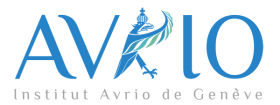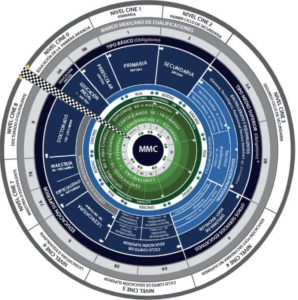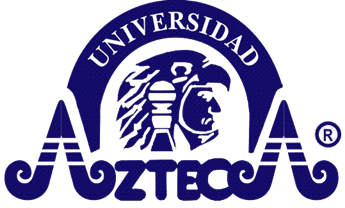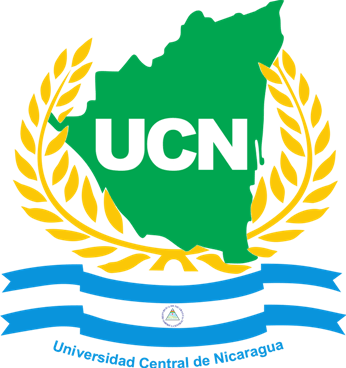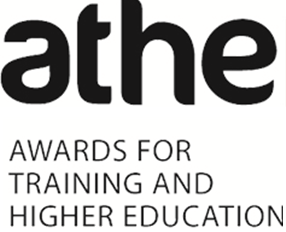Master of the University in Advanced Studies
Máster Universitario en Estudios Avanzados
Recognition of Transfer Credits
Degree requirements for the Master of Advanced Studies or the Executive MBA: At least a professional qualification at level 5, 6 or 7 of the European Qualifications Framework as entry requirement, plus academic documented 60 ECTS credits earned.
At Universidad Azteca, applicants may earn up to 100% of the credits required for the Master of Advanced Studies degree through Validation of transfer of credits options.
For the learning that can be recognised credentials and certificates of previously passed tests offer a much less complicated evaluation than is possible with portfolio validation of prior learning.
Candidates who have earned enough credits in prior course-work leading to any degree can transfer their degrees from a variety of sources into one degree awarded by Universidad Azteca in the Advanced Studies area.
This programme is different from the Professional Certification (Professional Studies) and the Validation of Prior Learning (Individual Studies) because it is based entirely on the recognition of transfer credits already earned at the postsecondary level.
Applicants must submit their complete educational and professional portfolio, particularly the acacemic credentials, transcript and student records, demonstrating the acquired skills and knowledge.
An evaluation report by an independent Professional, Statutory, Regulatory or Supporting Body or a credential evaluator service will support the application. We consult students on such independent service providers.
Universidad Azteca conducts an evaluation and issues a ruling on admission or rejection, or admission on conditions to successfully complete certain coursework.
Candidates who are admitted will be invited to a diagnostic online-examination of the degree requirements.
These ad eundem degrees are earned degrees, not honorary, because they recognise formal and professional learning and qualification.
Universidad Azteca particularly accepts the following credentials:
Transcripts, student records and certificates of study issued by an awarding institution, whereby, the awarding institution is one of the following
– a nationally recognised IAU listed university;
– a nationally recognised and accredited institution of postsecondary education;
– a state approved or lisensed institution of postsecondary education with degree awarding powers;
– an institution of postsecondary education with institutional accreditation by an accrediting agency recognised or listed by any government authority or board in charge of recognising accrediting agencies, or listed and recognised by CHEA, ENQA or INQAAHE;
– an institution of postsecondary education offering programmes with programmatic accreditation by an accrediting agency recognised or listed by any government authority or board in charge of recognising accrediting agencies, or listed and recognised by CHEA, ENQA or INQAAHE;
or the credential subject to validation is
– any certificate of partial studies that has already been evaluated and recognised by an officially recognised credentials evaluation service, e.g. NACES, NARIC, OFQUAL or Professional and Regulatory Bodies. (E.g. course by course evaluation)
Universidad Azteca applies the ECTS system as credits based system, whereby, we use the comparison of full study year credits instead of hours, because the various international definitions of “hours” make it impossible to compare the systems as the following example demonstrates:
One Mexican (SATCA & Acuerdo 279) credit is defined as 16 hours, meaning only lecturing hours, not including learning hours of studying, assignments and examinations workload. (Notice: SATCA requires 50 hours of practice for one credit). One full study years in Mexico requires 1,200 (lecturing) hours.
One European ECTS credit is defined as a workload of 25-28 hours on part of the student. One full study year in Europe requires 1,500 to 1,800 hours of workload. That includes lecturing hours plus all the independent learning, assignments and examinations on part of student.
One US semester or credit hour is defined as 16 hours of lecture or practice, even not reflecting the underlying workload of the student. One full study year in the US requires 480 (lecture or practice) hours.
If we take the different hours and simply compare them – as some evaluators and regulators in some countries do – it would mean the following:
A four years Bachelor in the USA usually comprises 120 US credits. That means one full study year is 30 credits in the USA. Or in hours it implies that a four years US-style Bachelor with 120 credits reflects 1,920 hours.
In Mexico a four year Licenciado degree requires 300 creditos, implying that one full study year requires 75 creditos. In hours that would mean that a four years Licenciado corresponds with 4,800 hours.
In Europe a four years graduate degree requires 240 ECTS credits, implying that one full study year requires 60 ECTS credits. In hours that would mean that a European-style four years graduate diploma corresponds with 6,000 to 7,200 hours.
It would imply that 4 study years in the USA would be equal to 1,5 study years in Mexico and equal to a little more than 1 study year in Europe.
Therefore, Universidad Azteca applies the correspondence of credits based on the full study years, as follows:
Principle of Reciprocity – One full study year of higher education is comparable in USA, Europe and Mexico:
30 US credits = 60 ECTS credits = 75 Mexican creditos
This process recognises credits earned in courses taught at university; learning which can be documented by certificates, letters of examination, CEU (Continuing Education Unit) transcripts, it accepts learning achieved in coursework with any accredited college or university or recognised learning programme, which can be documented.
Earn credit by Credit Transfer
Credits accepted through transfer by Universidad Azteca may come only from regionally accredited colleges and universities. The following include the college-level educational experiences that Universidad Azteca may accept for credit through transfer:
– Accredited Colleges and Universitie
Credits earned at a college or university that is accredited or a candidate for accreditation by an institutional accrediting body may be transferred to Universidad Azteca regardless of the number of institutions attended. Universidad Azteca does not transfer courses with no pass grades.
Students may be required to provide course descriptions, or a copy of the catalogue from the institution where the courses were taken, to enable course-by-course evaluations when determining if such courses can be accepted toward the degree requirements of Universidad Azteca degrees. If descriptions are needed, these should be requested from the registrar of the college(s) where the courses were completed. An official transcript from each institution to be evaluated must be submitted. Universidad Azteca will not accept credits listed as “transfer” on an institution’s transcript.
Universidad Azteca will accept credits from foreign colleges that are recognized by the educational authority of that country, and listed in one of the publications including recognized colleges and universities.
– Acceptance of Credits from Graduate Programmes
Universidad Azteca will accept credits of graduate work to apply to a programme.
– Demonstration of Currency
Because of the rapid changes occurring in technological and business fields today, it is important for today’s college graduates to maintain up-to-date knowledge in their field. Therefore, it may be necessary for students to “demonstrate currency” in order to transfer credits previously earned at other accredited colleges and universities.
Demonstration of Currency refers to the transfer of credits. If the credits you wish to transfer to the University are over 10 years old at the time of application to the University, you will need to demonstrate currency for these courses. You can validate these transfer credits by completing an oral conference with a faculty consultant covering contemporary developments in the subject at hand. You must be enrolled in the University to complete this procedure.
Legal basis, fields of study and scope of studies
Type: University course according to Art. 59 Ley General de Educación, Mexico.
State Recognition (RVOE) of the Universidad Azteca in Mexico by the General Directorate for Higher and University Education of the Ministry of Public Education (SEP) for studies in the fields of study Humanidades (Educación, Pedagogía), Ciencias Administrativas y Sociales, Ciencias de Salud y Psicología, Derecho , Informatíca, Arquitectura et.al. is available.
Universidad Azteca offers courses at all three levels (Licenciatura, Maestría, Doctorado), with RVOE and university-owned. The Universidad Azteca is entitled to award doctorates.
Scope: 90 ECTS credits. In Mexico, after the Licenciatura (at least 240 ECTS), a minimum of 60 ECTS (75 créditos SACA) is required for the Master’s.
Type and target group
Implementing and awarding university: Universidad Azteca, Chalco, Mexico.
University department in Austria: Universidad Azteca European Programs.
Target group: Master’s students who transfer their academic achievements to the Universidad Azteca and complete the master’s program with exams or a thesis.
Focus: application-specific.
Fields of study:
- Social and Economic Sciences
- Health Sciences
- Educational Sciences
- Psychology
- Environmental Sciences
Study languages: German, English, Spanish
Admission: Diploma course, which entitles to postgraduate studies and ECTS credit points from postgraduate studies and comparable professional training and further education (EQF and national qualification levels) e.g. at research institutes.
Modality and direction
Modality: Distance learning with face-to-face events and exams in Austria.
In the modality of “blended learning” with face-to-face events, courses with an examination character are held.
Scientific director: Prof. Dr. Gerhard Berchtold, Prof. Dr. Friedrich Luhan, Prof. Dr. Ricardo Saavedra Hidalgo, Prof. Dr. Felipe Fernández Rivadulla, Prof. Dr. Endler.
Study Plan
| Transfer credits – Free electives | Test mode | ECTS |
| Transfer from a master’s degree / EQF level 7 | Credits Transfer | Up to 60 |
| Optional subjects from a master’s degree at the Universidad Azteca | Exam | Difference to 60 |
| Scholar module compulsory subject | Test mode | ECTS |
| Research project | Presentation | 12 |
| Thesis / research project / examination / Final thesis | Test mode | ECTS |
| Written work in the specialization area | Written work, presentation, and examination | 18 |
| Master’s requirements | Test mode | ECTS |
| total ECTS | Defence / Master’s examination | 90 |
Qualification level: Level 7 of the Mexican Qualifications Framework MMC
